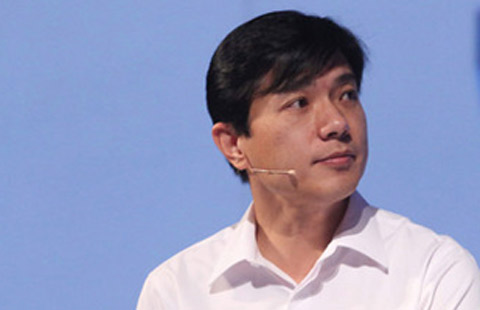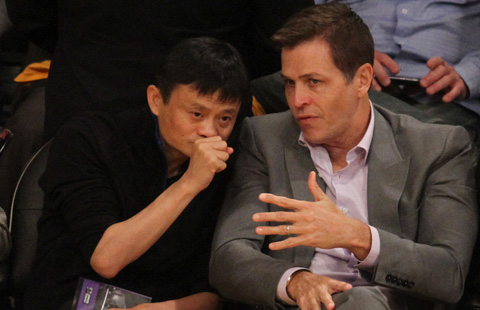China to open card markets
Updated: 2014-10-30 11:44
By Jiang Xueqing in Beijing, Wu Yiyao in Shanghai and Jack Freifelder in New York(China Daily USA)
|
||||||||
Decision means China UnionPay will face competition from abroad
China will open up the country's bank-card clearing market as part of a greater liberalization of the financial sector, a move analysts said could allow other domestic and foreign firms to get in the game.
The State Council on Wednesday announced that it intends to end China UnionPay Co's control over bank-card transactions.
Scott Valentin, managing director of specialty finance research with FBR Capital Markets, said the decision could be a boon to the Chinese operations of American mainstays like American Express Corp (AmEx), MasterCard Inc and Visa Inc.
"The Chinese are agreeing to open up the market to allow for competition, which would mean VISA, MasterCard and others could operate within China for network access," Valentin said.
"China UnionPay has interoperability with most of the networks, but in China it's a question of China UnionPay or nothing in terms of network acceptance," he said. "Every network wants to work to secure a spot, and they've all realized it helps to be friendly with the only network within China."
China UnionPay, established in 2002 in Shanghai by the State Council and the People's Bank of China, is the only national bank-card organization approved for use in clearing transactions in the world's second-largest economy.
Foreign firms and other Chinese companies are now free to submit applications to gauge qualification for the bank-card clearing services, according to a post on the central government's microblog. The statement from Beijing did not include a timeframe for the development.
China UnionPay said that it welcomes policymakers' decision to open up the country's clearing business and that it will "resolutely implement the decision".
The company also said it plans to improve its products and services.
MasterCard, based in Purchase, New York, said in a statement Wednesday that it has long believed that opening payment systems promotes growth by reducing the need for costly cash payments and also reduces systemic risk.
"We look forward to growing our presence and business in China, with the development of e-payments and as we move toward a world beyond cash," the statement said.
Visa and American Express could not be reached for comment.
A case brought by the US government to the World Trade Organization (WTO) in 2012 challenged China's requirement that foreign card issuers must use UnionPay's network for yuan-denominated transactions.
In July of that year, the WTO told China to stop discriminating against foreign payment companies, a group that included Visa, MasterCard and American Express.
Zhong Wei, a professor of finance at Beijing Normal University, said, "The State Council's decision means that a number of foreign institutions, such as Tokyo-based credit card company JCB International - and not just Visa and MasterCard - will enter the bank-card transaction clearing business in China."
Data from the People's Bank of China show that the country had issued 4.54 billion bank cards through June 30, comprising nearly 4.12 billion debit cards and 422 million credit cards. Bank-card transactions amounted to 109.58 trillion yuan ($17.9 trillion) in the second quarter, up 6.1 percent year over year.
Visa (60.5 percent), MasterCard (26.9), UnionPay (7.7) and American Express (3.8) accounted for the four largest portions of the worldwide transaction market in 2013, according to data from The Nilson Report, a payment industry newsletter
Alfred Nader, a vice-president with Western Union Business Solutions with expertise in the internationalization of the renminbi and Chinese markets, said: "You will definitely start to see more Visa and MasterCards in China, but this is another sign of the Chinese government wanting to internationalize the economy in a variety of ways."
"You may even see the next Visa or MasterCard be born in China out of this new announcement," he said.
Contact the writers at jiangxueqing@chinadaily.com.cn, wuyiyao@chinadaily.com.cn and jackfreifelder@chinadailyusa.com
Most Viewed
Editor's Picks

|

|

|

|

|

|
Today's Top News
US experts hope China joins trade partnership
WB report ranks China on business-friendly rules
Consensus sought with US on governance of Internet
China to join pro football wars
Halloween haunts China as popularity grows
Mixed bag for China as US Fed ends QE stimulus
Apple's Tim Cook says 'proud to be gay'
Conference conducive to building consensus on Afghanistan
US Weekly

|

|















